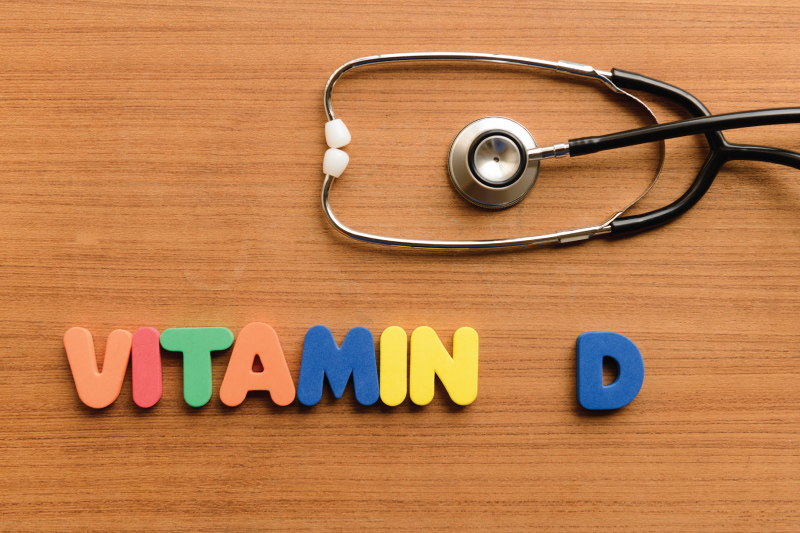What's the deal with vitamin D?
July 24, 2024
Vitamin D is vital to our well-being but an estimated 35% of adults in America do not get enough of it. Also known as the “sunshine vitamin,” vitamin D has neuroprotective, anti-inflammatory and antioxidant properties that support general health.
Vitamin D is unique because we can make it ourselves. When skin is exposed to the sun, our bodies start producing it naturally. Additionally, you can get it from some foods like salmon, tuna, mackerel and egg yolks. Since some of these foods aren’t common, it’s hard to meet daily intake just from food. To help bridge that gap, many foods like cereal and milk are fortified with vitamin D.
Here are some ways vitamin D can benefit your health:
Boost your mood
People experiencing depression or anxiety tend to have low vitamin D levels. The vitamin’s anti-inflammatory and antioxidant properties help boost mood and energy levels by reducing oxidative stress. Spending at least 15 minutes outdoors each day can help you naturally get the vitamin D you need. Just don’t forget sunscreen to protect your skin from the sun’s harmful rays.
Better bone health
Vitamin D is crucial for strong bones and teeth. Calcium, the mineral you need to build and protect your bones, can’t do its job without vitamin D. Our bodies can’t use calcium unless it has vitamin D to encourage absorption. Without vitamin D we are at a greater risk for brittle bones, bone fractures, muscle weakness and cramping.
Cold and flu protection
No single vitamin will help you fight off a winter cold. But early studies show that vitamin D levels can impact your risk of developing a common cold or other respiratory illness. If you are deficient in vitamin D, you are more likely to get a cold or the flu than if you have normal levels. Insuring you’re getting enough vitamin D from the sun and/or food during the cold and flu season can boost your immune system.
Talk to your doctor
If you are concerned about your vitamin D levels, it's important to talk with your primary care provider to see what options are available to you. In some cases, your doctor may advise taking a vitamin D supplement. Always consult with your primary care physician before taking any supplements or making any changes to your medication.

Need a Doctor?
Get the care you need without the hassle. Saint Agnes Care makes establishing with a new provider or scheduling a follow-up visit easy!
Find a Provider